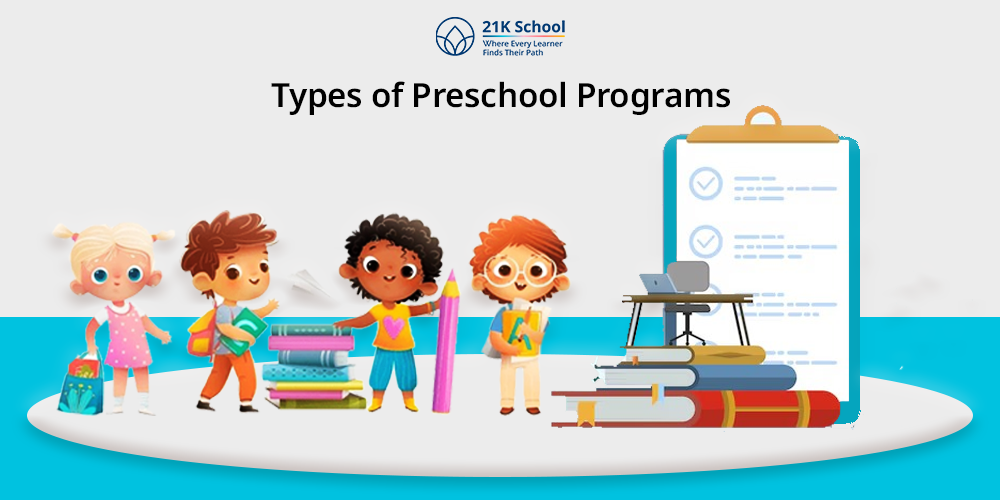
Homework is an essential part of a student’s academic journey.
Homework has been viewed as a way to reinforce classroom learning and develop essential life skills beyond the school environment.
Some people question its effectiveness and impact on students. However, it is crucial to recognize the benefits and significance of homework in a student’s life.
Homework is more like an opportunity for students which leads to a better understanding and a disciplined life.
In this blog, we will be learning about the importance of homework and how it helps students in gaining a balanced perspective.
But before that let’s understand what the purpose of homework is, and why it is introduced to students at a very early age in the education journey.
Table of Contents
- What Is Homework?
- The Purpose of Homework
- Importance of Homework
- 1. Enhancing Learning and Understanding
- 2. Time Management and Responsibility
- 3. Building Study Habits and Discipline
- 4. Fostering Independent Learning
- 5. Improving Academic Performance
- 6. Parent-Teacher Interaction and Feedback
- 7. Personal Growth and Development
- 8. Encouraging Collaboration and Peer Learning
- 9. Supporting Cognitive Development
- 10. Preparing for Future Challenges
- Conclusion
What Is Homework?
Homework simply means activities that are set by teachers to the students to be done outside normal time in school. These tasks may be reading assignments, written assignments, solving problems, projects, or research work.
In a way homework is designed to help the student practice the material and apply what the student has learned in class.
It also does promote self-discipline, time management, and autonomous learning that sets students up to succeed in future schoolwork.
The Purpose of Homework
It is well known that the primary purpose of homework is to teach students how to solve problems independently.
Additionally, homework allows students to review class material and gives parents insight into their child’s learning process.
Homework helps a student develop independent learning habits and it teaches them responsibility where they are given an opportunity to practice and refine their skills.
Some research highlights the negative aspects of homework, such as disruptions to family time, stress, and conflicts between students and parents. However, studies also show that homework significantly contributes to skill development and academic progress.
Homework helps students strengthen their self regulation skills, time management skills, goal setting and self reflection for their performance.
Importance of Homework
The importance of homework in the education of a student cannot be ignored. It supports teaching in classrooms and helps students to go back home and revise knowledge, and use it in practice.
It also teaches responsibility and time management, which students learn to organize their work and deadlines. Skill-building can also be incorporated, including critical thinking skills and problem-solving and research skills, through homework.
It helps parents know what the child is studying and also to have a chance of participating in what the child is learning. Homework ultimately leads to the academic achievement of a student as well as his or her overall development.
1. Enhancing Learning and Understanding

Homework provides students with a chance to deepen their understanding and learn more about the classroom lessons at home where they can revisit material, identify the areas of difficulty and clarify concepts later on.
This practice reinforces classroom learning, helps with information retention, and allows students to apply knowledge in assessments and real-life situations.
2. Time Management and Responsibility
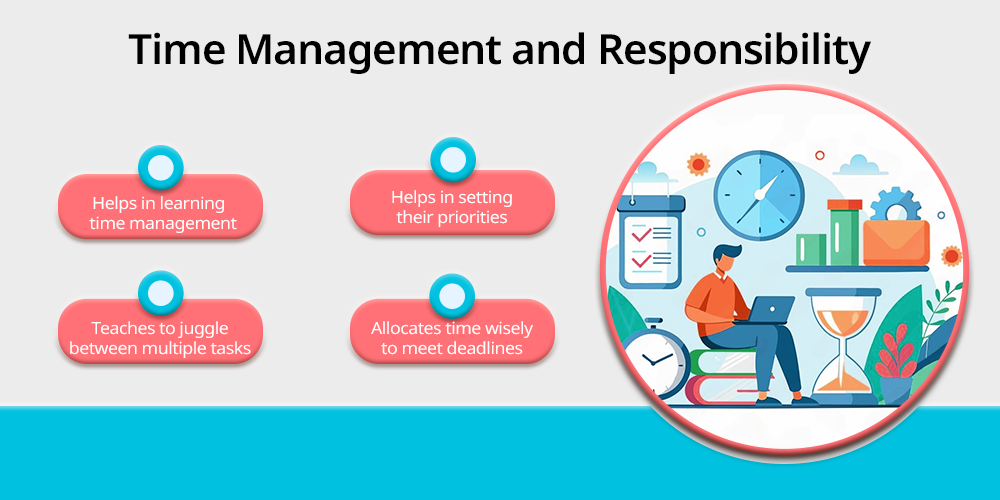
Homework helps students develop time management skills by teaching them to prioritize tasks, allocate time efficiently, and meet deadlines.
It is one of the most crucial skills that contributes to academic success and also helps a student thrive in their future career and personal life.
To know more about time management refer to this blog : How Can Students Improve Time Management Skills
3. Building Study Habits and Discipline
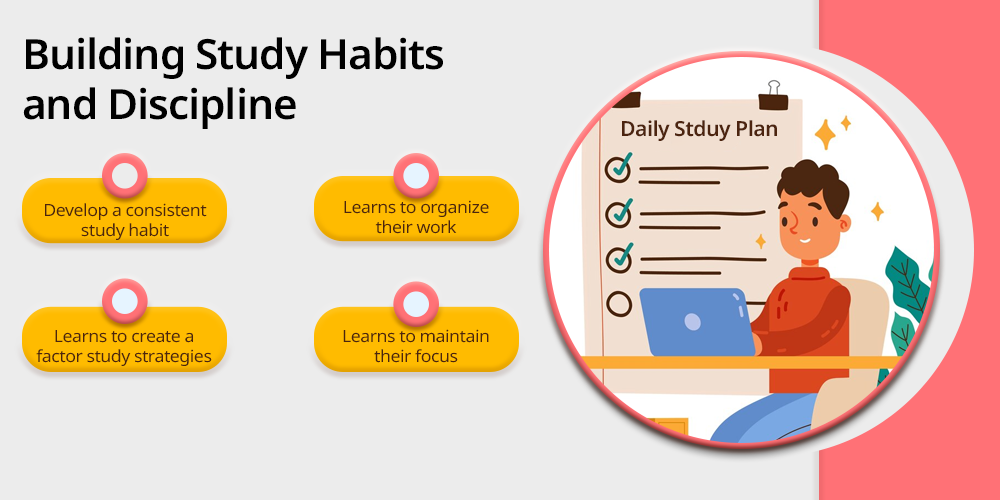
Homework encourages students to develop a consistent study habit.
These habits slowly become a part of their routine and discipline, which is very essential for academic success.
Over time, students learn effective study strategies, organization skills, and how to maintain focus. It contributes to the foundation of lifelong learning in students.
To know more about time management study techniques and discover how students can maintain a healthy lifestyle to ensure success from their early stages read : good habits of students to develop at an early stage.
4. Fostering Independent Learning
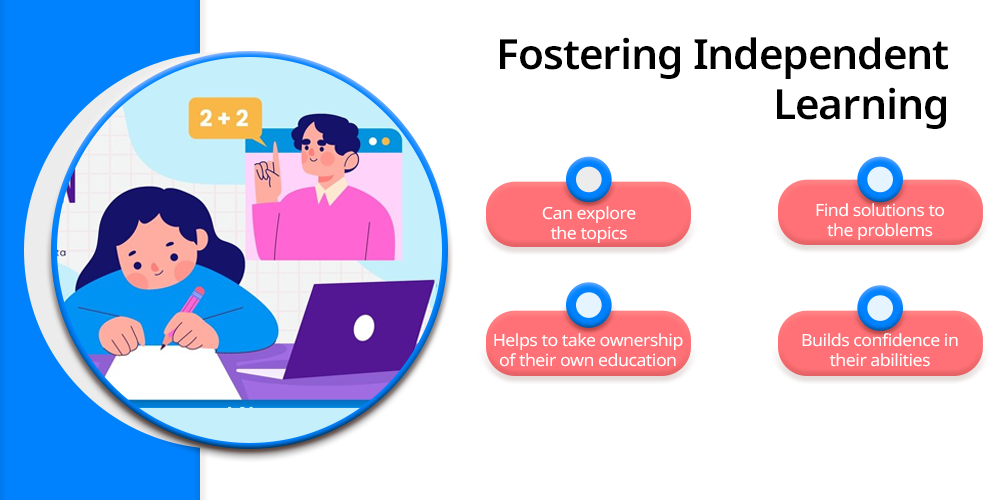
Homework offers independent learning opportunities for students where students can explore their topics, research and find solutions to the problems on their own developing skills like critical thinking, problem solving and analytical skills along with self reliance which helps them take ownership of their own education and build confidence in their abilities.
5. Improving Academic Performance
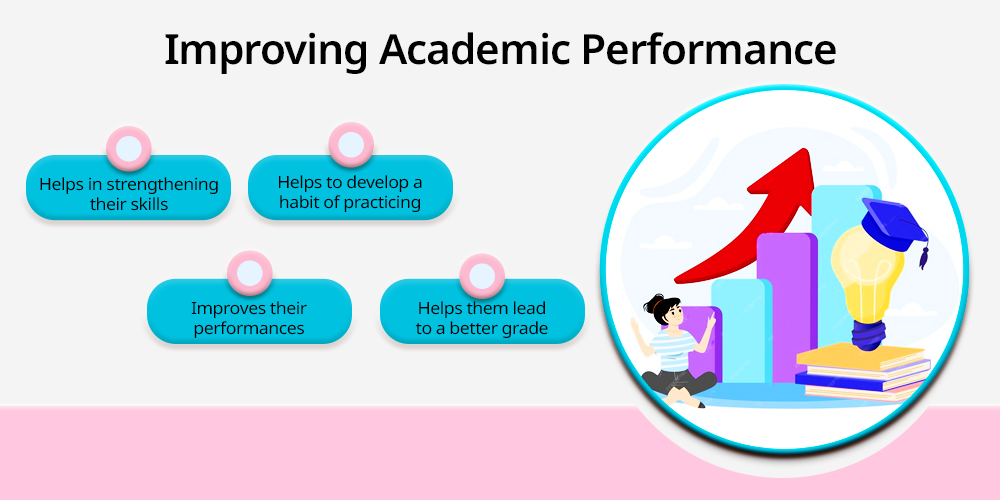
Homework helps students develop a habit of practicing which ultimately helps them perform better. Regular homework and assignments helps students in strengthening their skills and improves their performances in exams.
This consistent reinforcement of test assignments which a student encounters helps them lead to a better grade and academic success.
6. Parent-Teacher Interaction and Feedback
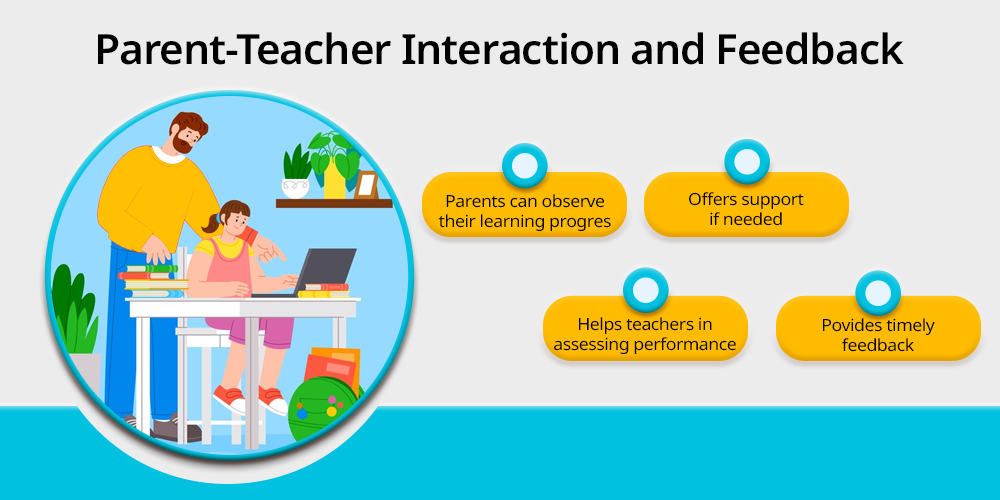
Homework provides an avenue for parents to stay involved in their child’s education. When students complete their assignments at home, parents can observe their learning progress and offer support if needed.
Teachers can also use homework as a means of assessing student performance, identifying areas for improvement, and providing timely feedback.
This collaboration between parents and teachers is crucial for the academic development of the student.
7. Personal Growth and Development
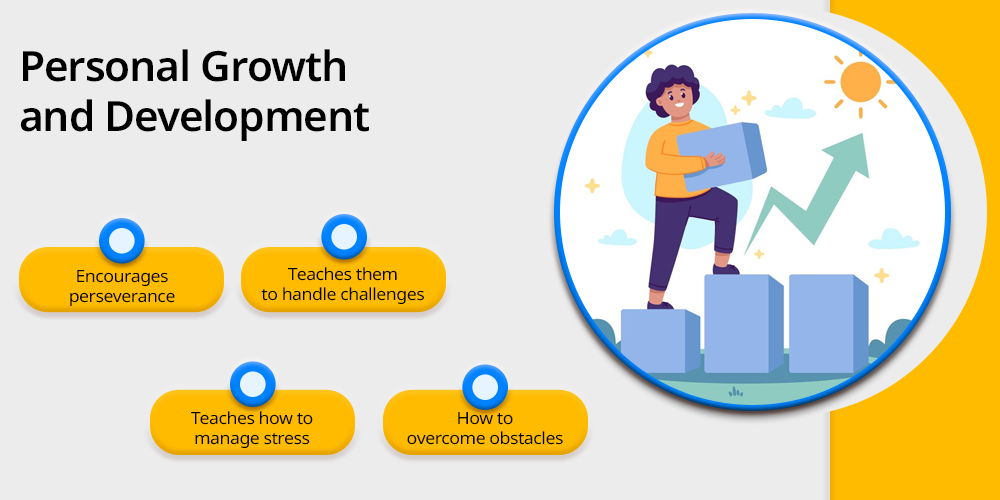
Homework contributes to personal growth by fostering perseverance, accountability, and self-discipline, teaching students how to handle challenges, overcome obstacles, and manage stress.
These skill sets are an integral part of students’ emotional health and help them grow into responsible individuals.
8. Encouraging Collaboration and Peer Learning
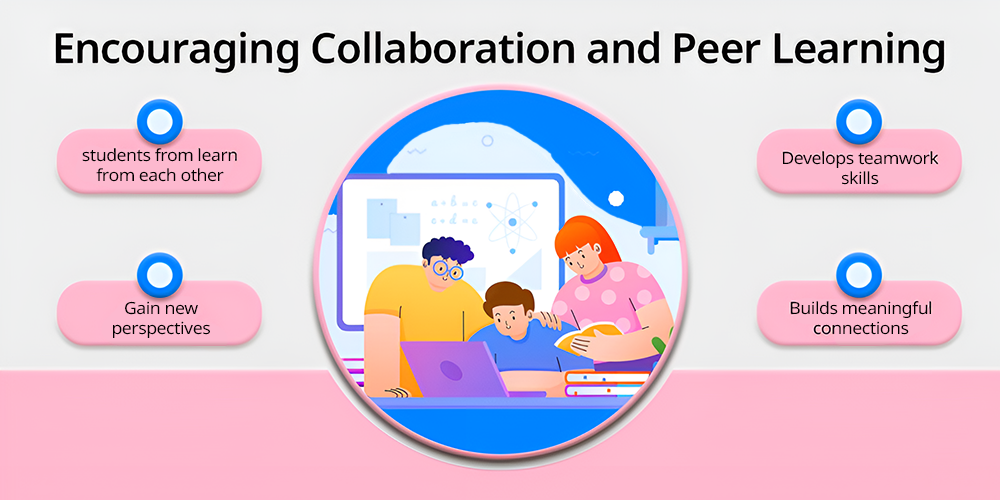
Homework encourages peer to peer collaboration, as some of the integral parts of the homework are group assignments and discussions which allows students to learn from each other and develop teamwork skills in them.
With the help of these projects and homework assignments students gain new perspectives in their life and build meaningful connections with their fellow classmates.
9. Supporting Cognitive Development

Homework helps students in developing cognitive skills and engage in high order thinking which helps them in analyse, synthesize and evaluate information efficiently.
These cognitive processes enhance critical thinking skills, allowing students to connect information effectively and apply their knowledge in diverse situations.
10. Preparing for Future Challenges

Homework helps students prepare themselves for future academic journey and professional challenges.
These rigorous classroom and school activities help them in learning more about workload management, meet deadlines and balance through their responsibilities developing skills that are essential for success.
Homework also teaches students to adapt into the changing expectations and demands of the world in terms of their educational and professional achievements.
With all these advancements students are equipped to challenge themselves and handle responsibilities in the real world.
Conclusion
Homework has long been a fundamental part of education, reinforcing classroom learning and promoting independent study.
While it may look like a burden to students, it is very important to understand the benefits it holds beyond academic growth.
Homework plays a very important role in shaping a students overall development where it helps them with time management skills and also helps them in encouraging independent learning and self discipline.
It helps students reinforce what they have learned, clarify their doubts, develop crucial life skills, and build a strong foundation for success while contributing to their future plans.



